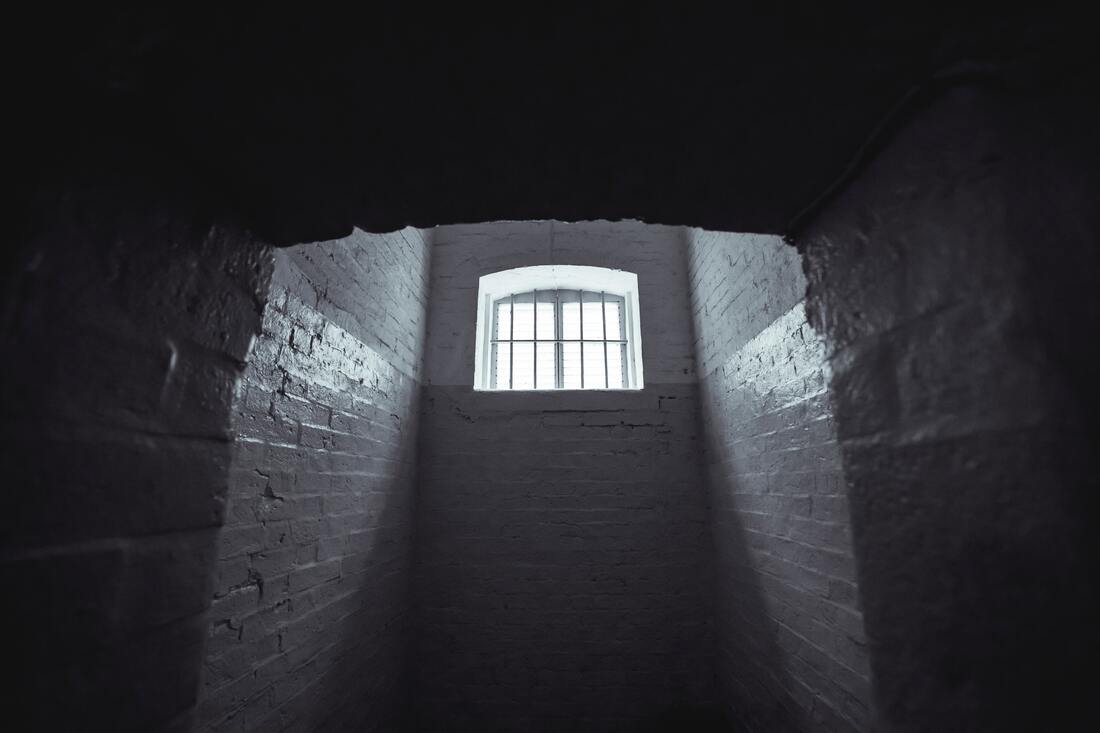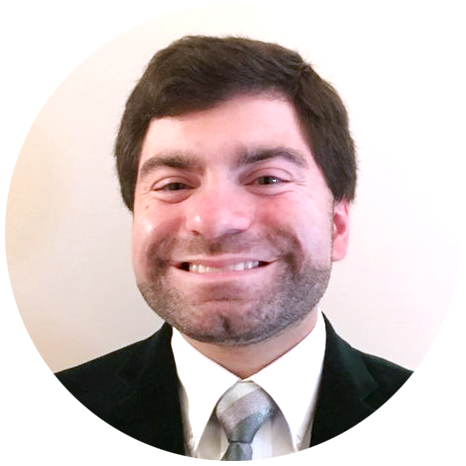|
By Garrett Smith | @gwsmith93 | TRINICY.org Since the dawn of time, humans have been in a state of rebellion. Beginning with Adam and Eve in the Garden of Eden, humanity has constantly disobeyed authority, whether it be Divine Law or the law of the land. The American Revolution marked a prime example of this, as seen with the colonists and their refusal to accept increasing government infringement in their personal lives at the hands of the British Empire. Most conservatives agree that a great republic is built upon a strong sense of law and order that also respects humanity’s natural rights. These natural rights are enshrined in the Declaration of Independence as “unalienable” rights, which include life, liberty, and the pursuit of happiness. The establishment of America was unique in that it was not only the first nation formed out of rebellion from an empire, but it was also the first to tell its federal government it had to respect natural rights. The end of the Civil War in 1865 soon brought about the addition of three amendments to the U.S. Constitution in an effort to help secure natural rights for freed slaves. Even after the addition of these amendments, however, many states adopted laws within their own constitutions that prohibited African-Americans from exercising constitutional rights. Over the next century, African-Americans would endure horrible treatment from the government, on both the state and federal levels. In the 1950s, however, things began to change as America entered the Civil Rights Era. Many leaders would become synonymous with this movement, but one - Dr. Martin Luther King Jr. - garnered perhaps the most recognition. DR. KING, THE MODERATE DEMONSTRATOR American history is filled with examples of African-Americans seeking justice and the upholding of their constitutional rights. Martin Luther King Jr. was certainly a moderate when it came to many issues. On one hand, figureheads such as Frederick Douglass and Booker T. Washington believed in change primarily through legislation and adopting the founders’ view of natural rights. As such, they believed change would occur over time. On the other hand, radical extremists, such as Malcolm X, were proponents of militancy. Dr. King, however, stood in the middle. Unlike Douglass and Washington, King advocated intervention by method of peaceful protest; therefore, King’s idea of demonstration was different from the type sought by Malcolm X. King gained national attention during the Montgomery Bus Boycott of 1955-1956. During this time, peaceful demonstrators in Montgomery, Alabama protested the segregationist policies of the city’s bus line. With Rosa Parks refusing to surrender her bus seat to a White man, the American Civil Rights Movement had officially begun. With a victory in Montgomery, the movement soon spread to other parts of the nation. ON TO BIRMINGHAM Many cities throughout the nation - both South and North - experienced racial injustice. Going into the 1960s, civil rights demonstrations broke out in Greensboro, North Carolina; Nashville, Tennessee; Washington, D.C.; Chicago, Illinois; Los Angeles, California; and various other locations. Perhaps the biggest turning point in the movement, however, would have been in Birmingham, Alabama. In April 1963, civil rights protesters there were brutally attacked by the police forces of Eugene “Bull” Connor. While the campaign resulted in several positive outcomes for the Civil Rights Movement, it also, unfortunately, led to the arrest of Dr. King. FROM BIRMINGHAM JAIL Following his arrest, Dr. King spent 11 days in the Birmingham City Jail. During his time there, he wrote a letter to the American people. In the letter, King discusses a topic that remains timeless: Legality vs. Morality. At the start, King acknowledged the issue regarding the influence of so-called “outside agitators.” Some individuals referred to King as such, and wondered why he would bother to come to Birmingham to stir attention for the Civil Rights Movement. As far as they were concerned, he should have kept away and minded his own. To King, however, being a peaceful outside agitator was not an option; it was a necessity. King recalled the fact that, by his own critics’ logic, the Apostle Paul was technically an outside agitator. King remarked that Paul left his village of Tarsus to spread the Gospel of Christ to Greece and Rome. Paul, like Dr. King, was arrested for his actions, but stood strong for what was right. Using Paul as an example, it was up to Dr. King to spread his gospel of freedom. “WHY WE CAN’T WAIT” King soon brought to light one of the most pressing issues of the entire movement: How much longer? Many people were suggesting that the civil rights demonstrators simply wait on their Constitutional rights to be fully achieved. For King, however, the wait had lasted long enough. The Civil War had been over for nearly a century, and the end of it brought about not only the end of slavery, but also the addition of three new amendments to the Constitution. These new amendments secured various rights for African-Americans, but many states sought their way around the amendments through the addition of new laws within their own constitutions, as well as literacy tests and poll taxes. For nearly a hundred years after the Civil War, African-Americans had still not been granted equal rights and protection under the law. For King and many others, the wait had gone beyond long enough. The following excerpt from the letter was later taken by King and presented as a chapter in his 1964 memoir, according to the Martin Luther King, Jr. Research and Education Institute of Stanford University. He wrote, “I suppose it is easy for those who have never felt the stinging darts of segregation to say wait. But when you have seen vicious mobs lynch your mothers and daughters at will and drown your sisters and brothers at whim; when you have seen hate-filled policemen curse, kick, brutalize, and even kill your black brothers and sisters with impunity; when you see the vast majority of your twenty million Black brothers smoldering in an air-tight cage of poverty in the midst of an affluent society; when you suddenly find your tongue twisted and your speech stammering as you seek to explain to your six-year-old daughter why she can’t go to the public amusement park that has just been advertised on television, and see tears welling up in her little eyes when she is told that Funtown is closed to colored children, and see the depressing clouds of inferiority begin to form in her little mental sky, and see her begin to distort her little personality by unconsciously developing a bitterness toward white people; when you have to concoct an answer for a five-year-old son asking in agonizing pathos, ‘Daddy, why do white people treat colored people so mean?’; when you take a cross-country drive and find it necessary to sleep night after night in the uncomfortable corners of your automobile because no motel will accept you...when you are harried by day and haunted by night by the fact that you are Black, living constantly at tip-top stance never quite knowing what to expect next, and plagued with inner fears and outer resentments; when you are forever fighting a degenerating sense of ‘nobodiness’ - then you will understand why we find it difficult to wait.” UNJUST LAWS King then turned his attention to the primary subjects of the letter. In King’s view, human beings have an obligation to break laws that are in violation of natural rights. Knowing that the definition of an unjust law could be ambiguous if not properly explained, he explained, “A just law is a manmade code that squares with the moral law of God. An unjust law is a code that is out of harmony with the moral law. To put it in the terms of Saint Thomas Aquinas, an unjust law is a human law that is not rooted in eternal and natural law. Any law that uplifts human personality is just. Any law that degrades human personality is unjust. All segregation statutes are unjust because segregation distorts the soul and damages the personality.” King proceeded to cite the biblical example of disobeying human law when it conflicts with obeying God’s law. He wrote, “Of course, there is nothing new about this kind of civil disobedience. It was seen sublimely in the refusal of Shadrach, Meshach, and Abednego to obey the laws of Nebuchadnezzar because a higher moral law was involved. It was practiced superbly by the early Christians who were willing to face hungry lions and the excruciating pain of chopping blocks before submitting to certain unjust laws of the Roman Empire. To a degree, academic freedom is a reality because Socrates practiced social disobedience.” LEGALITY VS. MORALITY It is always important to remember that legality is not always equal to morality. In today’s society, issues such as abortion are often in the spotlight. While Christians are obligated to love those who have had abortions as Christ would, it does not mean we should support their actions. When Jesus walked the earth, He frequently stood among those who sinned, but He never once encouraged their wrong behavior. In fact, quite the opposite, as He warned them to steer clear of sin. “Hate the sin, love the sinner” may sound cliche, but it still rings true. In Dr. King’s letter, he recalled instances of freedom and human rights being violated throughout the past couple decades in the name of legality, through the horrors of National Socialism and Communism. King stated, “We can never forget that everything Hitler did in Germany was ‘legal’ and everything the Hungarian Freedom Fighters did in Hungary was ‘illegal.’ It was ‘illegal’ to aid and comfort a Jew in Hitler’s Germany. But I am sure that, if I had lived in Germany during that time, I would have aided and comforted my Jewish brothers, even though it was illegal. If I lived in a Communist country today where certain principles dear to the Christian faith are suppressed, I believe I would openly advocate disobeying these anti-religious laws.” King continued further stating that often the greatest stumbling blocks to freedom are not the ones in direct opposition to it, but rather, the “peaceful moderates” who prefer negative peace to positive peace with the presence of justice. After spending 11 days in the Birmingham City Jail, Dr. King was released. His Letter from Birmingham Jail was published on May 19, 1963. King would go on to become an icon for freedom and justice. Historically, America has seen its fair share of disobedience to unjust laws. Two of the most prominent examples would be the Boston Tea Party and the Underground Railroad. Both of these acts have one thing in common: they resulted from individuals who refused to place the immorality of man’s law above the divinity of God’s law and heavenly-inspired natural rights. Today, when freedom is threatened by tyrannical legislation, may we always stand firm in the faith and remain everlasting guards for justice. Let us never forget Dr. King’s timeless phrase: “Injustice anywhere is a threat to justice everywhere.”
0 Comments
Leave a Reply. |
Archives
March 2024
DisclaimerThe views, information, and opinions expressed in this website are solely those of the individual contributors and do not necessarily represent those of TRINICY International. Categories
All
|
Content |
Programs |
© COPYRIGHT 2018-2023
ALL RIGHTS RESERVED. |


